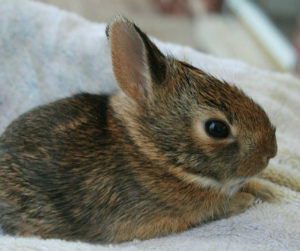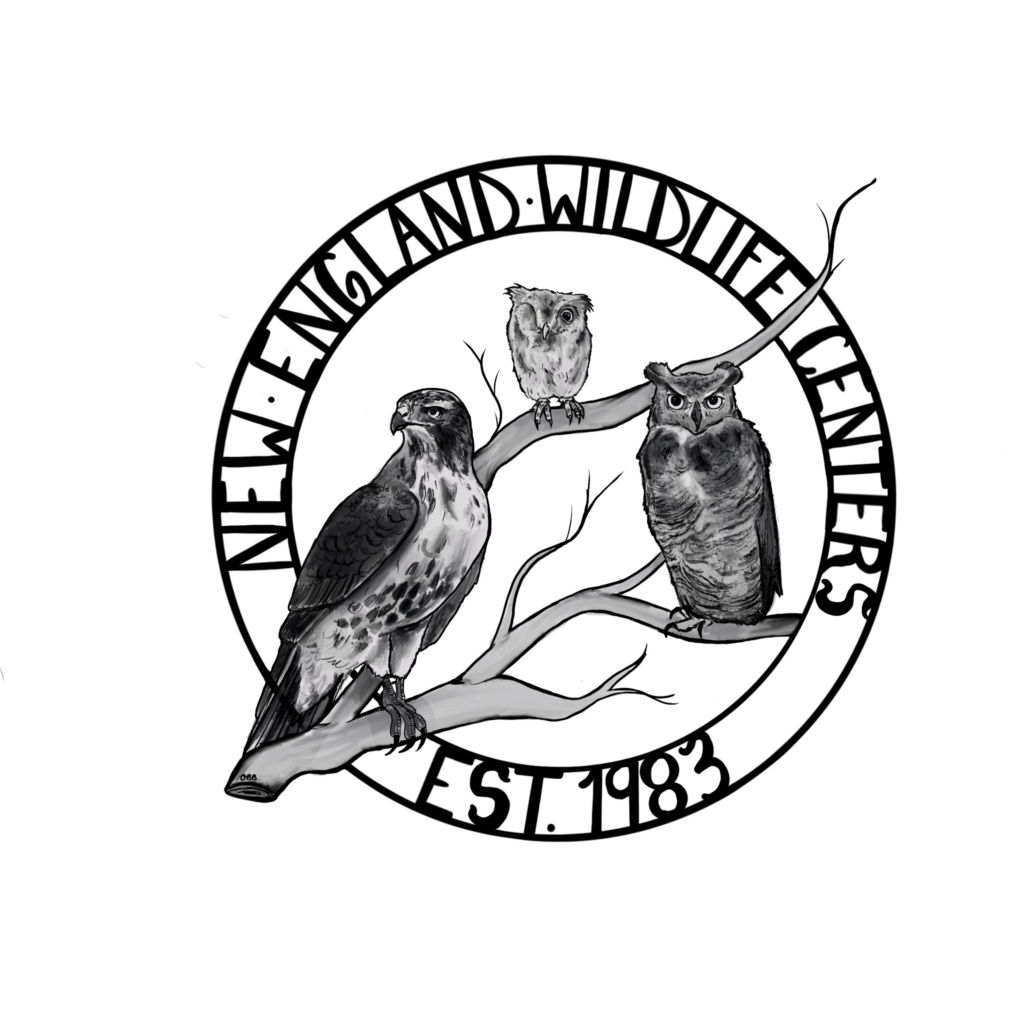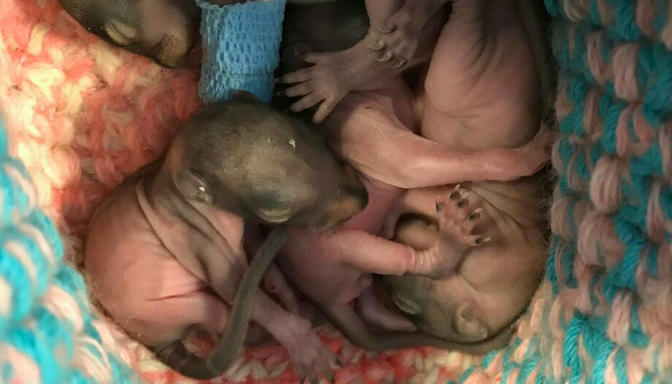Watch out for wildlife and help prevent wildlife kidnapping!
During the spring and summer, baby animals are brought to New England Wildlife Center’s wildlife hospital for emergency veterinary care. Some are sick and injured, some have been orphaned, but many have been unintentionally kidnapped by well-meaning people concerned that a baby has been left behind.
“The best place for a baby animal is with its parents,” explains Dr. Greg Mertz, an Odd Pet Vet and wildlife veterinarian at New England Wildlife Center-Weymouth. “Whenever possible, we want to reunite young animals with their mothers to give them the best chance of survival.”
Baby Animals Left Alone Are Not Always Orphans
According to Dr. Mertz, it is normal behavior for some wild animal mothers to leave their babies for long stretches of time during the day.
 Rabbit mothers, for example, only visit their babies in their nest twice per day, just before sunrise and just before sunset. She remains hidden the rest of the time. This behavior helps keep predators away and young animals safe.
Rabbit mothers, for example, only visit their babies in their nest twice per day, just before sunrise and just before sunset. She remains hidden the rest of the time. This behavior helps keep predators away and young animals safe.
Mother deer also leave their fawns for long stretches of time while they look for food. This behavior is also intended to keep their young safer until they grow stronger and steadier on their feet.
IMPORTANT NOTE: NEWC is not allowed by Massachusetts law to treat deer. Please visit the Division of Fisheries and Wildlife at mass.gov/service-details/prevent-conflicts-with-deer for more information.
Mother animals will also seek out babies that may have fallen out of a nest. When a baby cries it is letting its mother know where to find it.
This is natural communication and one of the best ways to bring mom to the rescue.
Squirrel mothers typically have two nests. If one gets damaged, she can move her litter to the other location. She will come back to retrieve her young, though it may take a few hours.
Same for baby birds. If you can spot the nest, put the baby back into it. The parents may be slow to return to the nest because of the human disturbance, not because you touched their baby.
Note that some birds including robins, crows, and owls leave the nest and spend a couple to a few days on the ground before they can fly. This is normal maturation. Their parents continue to watch them during this time to keep predators at bay and provide food and nurturing.
Unless a baby animal is sick or injured, the best way you can help one that may have fallen from the nest is to keep pets away from the area and give their parents time to come and find them.
What Should You Do If a Baby Animal Is Sick or Injured?
Survival in the wild is very hard and sometimes baby animals do get sick or injured. If a baby animal is visibly injured, shows little sign of responding to your approach, or looks like they are starving, contact New England Wildlife Center-Weymouth at (781) 682-4878 or Cape Wildlife Center at (508) 362-0111. Leave a message if you are directed to voicemail, we check it regularly.
“If you find a baby animal,” says Dr. Mertz, “Give us a call. We’re happy to help you sort out which baby animals truly need our help.
To read our answers to frequently asked questions about helping baby animals, visit our orphaned wildlife resource page.
What Should You Do If You Find A Bat?
Until the mosquitoes come out again when the weather gets warm, bats remain in torpor, or a state of decreased physiological activity and allows animals to survive when food is harder to get. People can accidentally disturb bats when they do spring cleaning in a garage or attic.
In the summer, bats are more active but can get sick and injured – or stuck someplace they aren’t supposed to be.
If you find a bat, call your local animal control officer, humane animal removal service, or New England Wildlife Centers for guidance:
New England Wildlife Center-Weymouth, (781) 682-4878
Cape Wildlife Center, (508) 362-0111
Leave a message if you are directed to voicemail, we check it regularly.


